When polity develops accountability and corporatedom grows a heart it becomes Twenty20. This is practical Utopia: organisation, skilled manpower, resource and vision meet people. Being first of its kind, everything is not honky-dory; then at every turn there is a new learning. Posing a threat to established norms, hierarchical bureaucracy and lucrative red-tapism, obstacles are aplenty. But addressing each and surmounting them are exercises in cohesion; when people come together to ascertain their rights, democracy flowers and its roots go deeper. What was at worst dismissed as a philanthropist’s dream and at best a social experiment has completed five years and a reference point for landmark development practices. Politicians, academicians, corporate honchos and international observers and influential journalists continue to make a beeline to Kizhakkambalam, a little village in Kochi suburbs of Kerala to observe and note the giant strides made towards the ‘best panchayat* in India by 2020.’
A ‘panchayat’ or ‘gram (village) panchayat’ is the outcome of the failure of successive central governments in India to deal with local problems. In 1992, the panchayat was reintroduced as an organisation for local self-governance. There are over a quarter million panchayats in India.
The ‘panchayat raj’ or the government of the panchayat is a Lincolnian dream – it is by the people and for the people. The people decided their candidates – and voted for them. Paving the way for their election was a corporate, the Rs 12 billion Kitex Group. In 2013 when Section 135 of the Indian Companies Act prescribed a mandatory 2 per cent spend of average net profits on corporate social responsibility, most companies picked a handful of strategic areas that supported business goals, chose issues that had a direct bearing to core products and main markets. This was a ploy employed for market penetration, increase market share and build brand identities. Launched in May 19 the same year, Kitex envisaged Twenty20 to develop the village across not one or two parameters but a whole gamut of them. And the money earmarked was above, way above, the mandated percentage. The reason was simple – legacy.
“My father always believed that the growth of the company should ensure the development of the village,” said Sabu Jacob, MD of Kitex Garments and the chief coordinator of Twenty20. His father the late Mr. MC Jacob was also an acclaimed physician who, in his time, would give free treatments to the needy at his home after work. A medical camp was organised in his memory which also provided Sabu his ‘Buddha moment.’
“The mega medical camp attended by thousands opened my eyes to the severity of suffering that was all around us but not in plain sight,” he said in one of the earliest films I made on Twenty20. There were cancer patients and those with heart ailments who required regular medical interventions. Around the same time a chronically diseased person killed himself as he feared being a financial burden for his family.
“My work couldn’t be limited to one medical camp or giving financial assistance to a handful.”
This marked the transition of Kitex from a good company – which makes excellent products – to a great one – which makes excellent products and strives to make the world a better place.
Twenty20 was born.
Development
Mr MC Jacob’s story is the stuff of legend – a lesson in grabbing opportunities often unseen, in this case, literally right in the backyard. His Anna Aluminium was started with just eight people in 1968 salvaging scrap from a large aluminium company nearby and moulding them into vessels. These vessels of exceptional quality and soon came to enjoy a fine reputation. The company grew over the years entering into the textile sector with Kitex – an amalgamation of ‘Kizhakkambalam’ and ‘textiles.’ The Anna-Kitex Group is valued at Rs 12 billion today with a diverse product portfolio and employs over 15,000 people from all over India. Kitex Childrenswear supplies to almost all the leading manufacturers of kid clothing in the world. Sabu, who began his entrepreneurial journey under the stern – sometimes even harsh – tutelage of his father, has gone on to win several national and international awards for his business acumen and enterprise. Kitex was chosen one of ‘the best companies in Asia’ by the Forbes magazine.
The development of a village in a systematic and scientific manner through sustainable programmes that uplift and enrich every aspect of an individual’s life which will, in the long run, ensure the progress of the nation. (Vision statement of Twenty20.)
Twenty20 is the development initiative of the Anna-Kitex Group which covers multiple themes like housing, food security, water conservation and women and child care to education, agriculture, self employment and sanitation. It ensures sustained and sustainable inputs to community growth through long-term commitment to specific issues – a total of 12 which covers the whole gamut of the development spectrum. Kizhakkambalam is being developed as a pilot model of sustainable growth which is both scalable as well as replicable. The learning from the past five years has become a useful resource which can today be employed to develop any village regardless of its condition or location.
“I will continue to learn from the model and copy it unabashedly to develop my constituency,” said Kamal Haasan while inaugurating God’s Villa – a cluster of 37 houses constructed by Twenty20 for the economically most backward. The ace actor, director, who also recently made his foray into politics, was basically echoing the sentiments of a long line of prominent leaders like Nitin Gadkari, influential academicians, writers and journalists who have been awed by the Twenty20 model.
The sustainability angle
The naysayers who question the sustainability of the initiative conveniently overlook the fact that Twenty20 is only the catalyst. True, it has access to corporate resources including finances. But it doesn’t mean an unfettered influx either; on the other hand it stipulates strict checks and balances which ensures each development dime is used for the earmarked activity. Besides, the approach to development is on a scientific footing. Kizhakkambalam is probably the only panchayat in the country where residents are issued cards denoting their economic status: red, yellow, green and blue from extremely poor and vulnerable to the well-to-do. This ensures that the programmes reach everyone and none of the deserving is left out. The mapping is also done to identify needs and opportunities and interventions are identified.
A highly qualified and experienced team with varied expertises design and pilot development projects, set measurable outcomes and scale. The parent corporate comes in at the next juncture with seed funding – provided across 12 identified themes. Once these are off the ground, public-private partnerships are brought in, collaborative projects are pitched for, funding and execution partners are identified as well as convergence plans. Kitex will now play the parent whose children are grown to be capable, independent, reliable citizens. The role will be mostly monitoring as well as gap funding as and when the need arises.
Polity
The foray into politics made by Twenty20 contesting the panchayat poll in 2015 was much anticipated by the people. It came as a breath of fresh air in a landscape dominated by bipartisanship – two parties have been interchanging power on a regular basis. Despite both these parties being mired in scams and scandals, people were left with no other alternative. The apolitical Twenty20 soon came to be seen as a more desirable third option – which was serious about development and carrying out the programmes with the discipline of a corporate. In fact, the structure and regimen with which the development agenda was carried out played a big role in Twenty20 sweeping the polls – winning 17 wards out of the 19 seats in Kizhakkambalam panchayat.
The slew of programmes launched by Twenty20 two years earlier, in 2013, was being hindered by political parties with their own vested interests. Hoarding of food items by ration shops and blocking of water supply were some of the atrocities unleashed on the people at the time. Surprise inspection of road construction activities undertaken by then panchayat authorities revealed that the contractor compromised on quality tarring probably emboldened by political patronage. Enough was enough, was the overriding public sentiment.
“More than a party, Twenty20 is a movement,” says Sabu Jacob, who, in his role as the chief coordinator of Twenty20 convenes most of the meetings. “And like any movement of this magnitude, here too the strength is the people – their unconditional support and love.” Every morning there is a mini ‘durbar’ at his private residence where citizens come to air their grievances which are immediately addressed.
Just as this support and love, their faith was also on full display on March 10, 2019, during a convention held in Kizhakkambalam where over 2500 people turned out – or one representative from every four houses in the panchayat. Main discussion points were the upcoming Lok Sabha elections – Kerala will be going to the polls in April this year. Everyone at the meeting expressed their disgust with the current crop of political parties and their shenanigans prompting Twenty20 to field its own candidate.
If history was written in 2015, this decision will redefine statecraft itself. When a big business enters politics with the right mandate and the right candidate, politics will cease to be a business anymore.








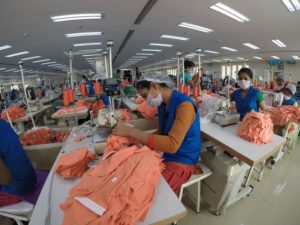


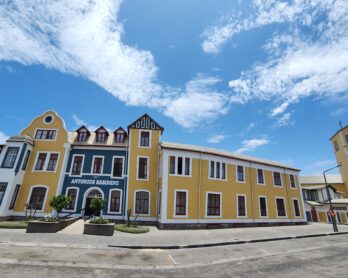
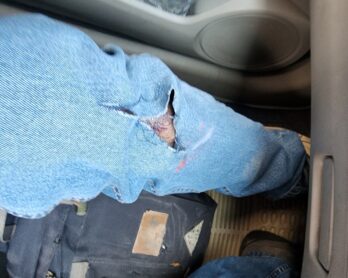
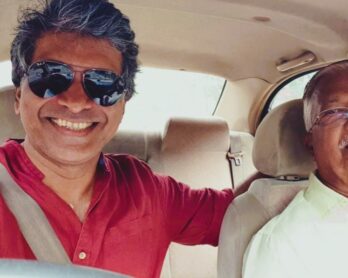



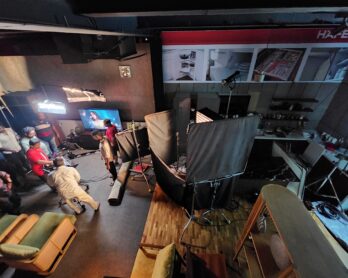

Nice post! Thanks for sharing Jose
You are welcome!
Nice article and Love the way you write about travel and different cities.
This is an amazing story of the development. Loved reading it.
Really wonderful blog with amazing minimal articles, well, the idea of this blog is totally different from other sites I’ve been spending time over the 20+ website and this is one the out of the box site for me and my girl.
Regards, Domnick
nice article